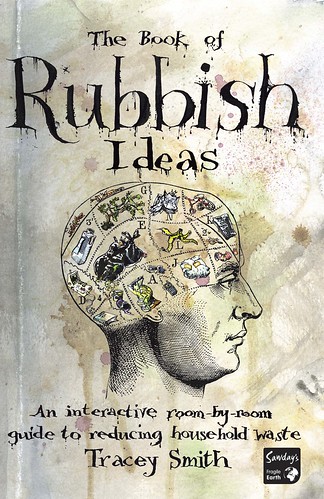I thoroughly enjoyed my recent Rubbish Q&A Day here on the blog and thank you again for all of your thought provoking questions.
One particular question left me with strong concerns about the stockpiling of recyclable materials, in light of the blip on our economic landscape.
My research uncovered the plummet in the trading price of steel to £0.00 per tonne. The knock on effects of this hiccup could be disastrous for the public and manufacturers alike, but I’m delighted to counteract that story with more promising news.
WRAP (Waste and Resources Action Programme), the Government’s waste advisor, is set to launch a new advice forum for local authorities to help them deal with lower prices and weaker demand for recyclable materials.
Responding to the current difficult market, WRAP is providing a clear message to consumers, supported by local council advice that they should continue to recycle.
Despite weaker markets for some products, WRAP research shows there is still strong demand for many high quality recyclable materials.
Over the last few weeks WRAP’s economists have been working with local authorities and the recycling industry to combine understanding of price movements with market supply and demand across the industry. This insight enables WRAP to act as a unique information broker between local authorities with specific issues, and share this knowledge with the widest possible audience via its website.
Although it is clear from the information coming from local authorities that commodity prices are under pressure, WRAP’s online market knowledge portal and tailor-made advice forum, available on Friday 5 December, will help local authorities through the downturn.
While demand for some lower quality recycled materials, such as those that are mixed with other materials like plastic trays, tubs, pots and film, has dropped; there is still capacity and demand for other high quality recyclables such as plastic bottles and glass.
The Environment Agency has recently set out new guidance for operators to help them to minimise the impacts of this downturn, should they need to store waste in the short to medium term until markets recover.
Closed Loop Recycling, a plastic bottle recycling facility in Dagenham is just one example. The facility only uses bottles collected in the UK, and processes 875 million bottles (35,000 tonnes) every year- turning them straight back into new plastic bottles bought by major UK brands.
Liz Goodwin, CEO at WRAP said:
In these uncertain markets with low demand for some recycled products, the message to householders is clear: there are markets for most materials and we should continue to recycle. Of course, it is important to check locally which materials can be recycled in your area.
Many local authorities have told us that they are continuing to find markets for recovered materials, particularly high quality materials such as plastic bottles and glass. The vast majority of materials that are being put out for recycling are still being recycled. Let us be clear, material that is not put out for recycling will definitely end up in landfill, which has the worst possible environmental consequences.
Recycling is now a way of life in this country - more than two-thirds of the population consider themselves ‘committed recyclers’, so it is imperative that we do not lose this momentum. Our advice, which local authorities support, is that we should all do what we can to continue to recycle.
Keep up the good work!
Rubbishly yours,
TSx


